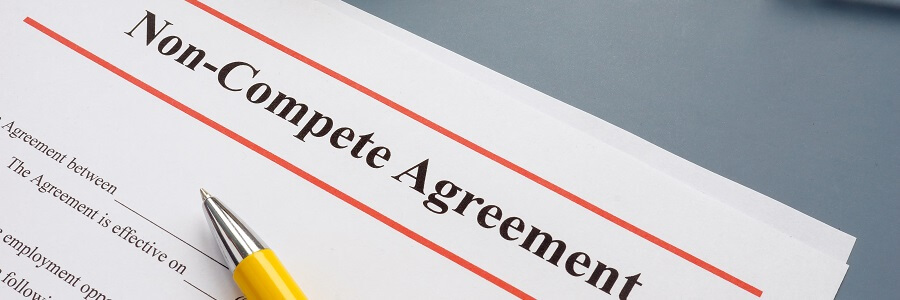What Does Gen Z Want in the Workplace?

Quick Look: Gen Z is reshaping the modern workforce. These technology-driven, social activists want more flexibility, more work/life balance, and more non-traditional employee benefits – and employers must be prepared to give it to them. In a time of great turnover, smart organizations need to strategize on who these workers are and how to deliver what they want in a job.
Look out millennials, Generation (Gen) Z is entering the workforce and will soon surpass you as the most populous generation on earth. This generation, born between 1996 and 2012, make up more than a quarter of the United States (U.S.) population and is projected to be the most diverse group in the nation’s history.
According to the Bureau of Labor Statistics, there are more than 60 million Gen Zers in the U.S., with 16- to 24-year-olds making up 11.6% of the workforce in 2020, primarily working in retail and hospitality — two industries hit hardest by the pandemic. And as the economy starts to show signs of life, this generation is taking a closer look at what they want from employers.
Between the ongoing labor shortage and the general struggle to attract and retain employees, tapping into the next wave of talent is more important than ever. So, what does Gen Z want in the workplace? Here’s a look at who this generation is, what they’re looking for in a career, and how small- and medium-sized businesses (SMB) can become more strategic in recruiting them.
Who is Gen Z?
Gen Z is commonly categorized as people born in the late 1990’s through 2012. They are pragmatic, technology savvy, and generally skeptical of the world around them, having grown up as social media natives in a time of rampant misinformation. The oldest members of Gen Z are fresh out of college and ripe for recruiting through university career centers, job fairs, or on their preferred social platforms of Instagram, Reddit, and TikTok.
According to Pew Research Center, compared to previous generations, Gen Z is…
- More racially and ethnically diverse
- On track to be the best-educated generation yet
- More likely to want an activist government
- More comfortable using gender neutral pronouns
These qualities have a massive impact on Gen Z in the workplace. Their intrinsic skepticism of the world around them means authenticity matters, and smart employers need to tailor their strategies to appeal to the wants and needs of this new era of workers.
Gen Z at Work
It’s no secret that a strong benefits package is key in attracting employees. But what once mattered to older generations isn’t what’s going to get younger workers in the door. Today’s Gen Z candidates are evaluating more than just health insurance, compensation, and retirement plans. They’re looking at the full holistic workplace — including company culture and whether perks and benefits align with their lifestyles.
To attract this group, employers should ask themselves: What do our younger employees want from the workplace? Here are several modern perks and benefits that SMB employers must be ready to offer if they want to entice Gen Z candidates.
Work/Life Balance and Flexibility
Studies show that Gen Zers prioritize work/life balance and personal well-being over many other traditional employee benefits. Specifically, they’re looking for benefits that extend beyond medical or dental coverages. According to MetLife’s 17th annual U.S. Employee Benefit Trends Study (EBTS), 57% of Gen Z feel they would be more successful in both work and life if they had access to more progressive benefits. These could include unlimited paid time-off (PTO), mental health days, or financial wellness programs.
In the new work anywhere world, flexible options are the rule, and not the exception. In fact, Glassdoor reports that flexibility has replaced healthcare as the number one sought-after benefit. Gen Z, fluent and comfortable working with digital tools, prefer to work from home or wherever best fits into their lives. Many of these employees crave fluidity and an individual management style where they can complete their work their own way, on their own time. Employers who are trying to attract and retain Gen Z talent should ensure they’re offering some flexible workplace options, including partial or fully remote work days, PTO to volunteer, and exercise breaks.
Technology
Having grown up as the digital-first generation, Gen Z has never known a world without the internet and is more technology driven than any other age group. They have been conditioned to expect immediacy and want to access information quickly and easily, from anywhere, at any time. This means employers seeking to recruit this group should invest in technology platforms and mobile applications where Gen Z employees can conveniently manage their HR tasks like payroll, employee benefits, or PTO.
A study by Dell shows that 80% of Gen Z expect their company to provide laptops, tablets, and phones, and another 91% say technology influences their decision to choose between similar employers – meaning offering the right tools and software to your Gen Z employee can be the difference between them choosing your company or seeking employment with a competitor.
Diversity, Equity, and Inclusion
Diversity, equity, and inclusion (DEI) is an increasingly relevant topic in today’s business environment, and of special importance to members of Gen Z as they seek out employers who align with their values. Excluding this area from your business operations will prove to be a disadvantage to companies who want to attract these candidates.
This age group is the most racially, ethnically, and culturally diverse generation in U.S. history. And with so many of these workers reporting having witnessed, or personally experienced discrimination or bias based on race, ethnicity, sexual orientation, or gender identity in a workplace setting, it’s no surprise that this generation is holding their employers to higher standards.
Career Growth and Development Opportunities
A strong number of Gen Z workers have stated they require a clear set of development opportunities for advancement in their roles. LinkedIn’s Workplace Learning Report 2021 demonstrates just how important learning and development is to younger workers. 67% of Gen Z learners spent more time learning in 2020 on LinkedIn’s platform than they did in 2019—logging 50% more hours watching online courses than learners from any other generation.
By investing in your younger talent, you can secure the best Gen Z employees long-term. This begins with laying out a well-defined career plan accompanied with specific programs including mentorship opportunities, cross training, upskilling/reskilling, and online education courses.
Corporate Social Responsibility
Gen Z has more social awareness than any other generation and care deeply about authenticity, activism, and values. These employees are interested in working for ethical companies who believe that solving today’s societal issues is just as important as making a profit. A McKinsey Partners study revealed Gen Z expects businesses to practice what they preach when displaying company ethics, while a Deloitte poll showed that 77% of Gen Z respondents said it was important for an organization’s values to align with their own.
Raised in the digital age with a series of social justice issues front and center, Gen Z learned that their voices are powerful, and their actions can bring change. So, when it comes to corporate social responsibility, Gen Z is demanding it and there simply is no option for SMB employers not to fall in line.
Wellness Initiatives
The American Psychological Association’s Stress in America 2020 report revealed that Gen Z is currently the most stressed out generation, attributed to growing up during a time of climate change, political instability, and a global pandemic. As such, this generation is more likely to seek mental health assistance or wellness support from their employers in the form of mental health training, employee assistance programs, or referrals to low-cost or no-cost professional mental health resources.
Many of these new workers are also fresh out of college and ridden with student loan debt. Offering a student loan assistance program is a great way to attract these Gen Zers. In fact, a CNBC report states that eight in 10 workers with student loans say they would value working for a company that offers student loan debt assistance.
Employers can also offer other financial wellness options, including retirement plans, 401(k) and other savings plans, stock options, health savings accounts, education saving programs, and more. Partnering with a professional employer organization (PEO), like ExtensisHR, allows SMB employers to offer these Fortune 500-level benefits to their employees.
Meet the Needs of the New Workforce
So, now that you can answer the question, “What does Gen Z want in the workplace?” it’s time to reassess your recruitment practices and benefit offerings. Your PEO company can help by tailoring traditional and non-traditional employee benefit packages to attract younger workers and offer guidance on developing company culture and social awareness initiatives.
As with any generation in the workplace, understanding and supporting your Gen Z employees will take some effort. But by updating and adjusting HR practices and strategies to meet the needs and desires of what Gen Z is looking for, you can position your company as an employer of choice for fresh, young talent.
Need new ideas to attract and retain Gen Z talent? Our HR experts are here to help.



